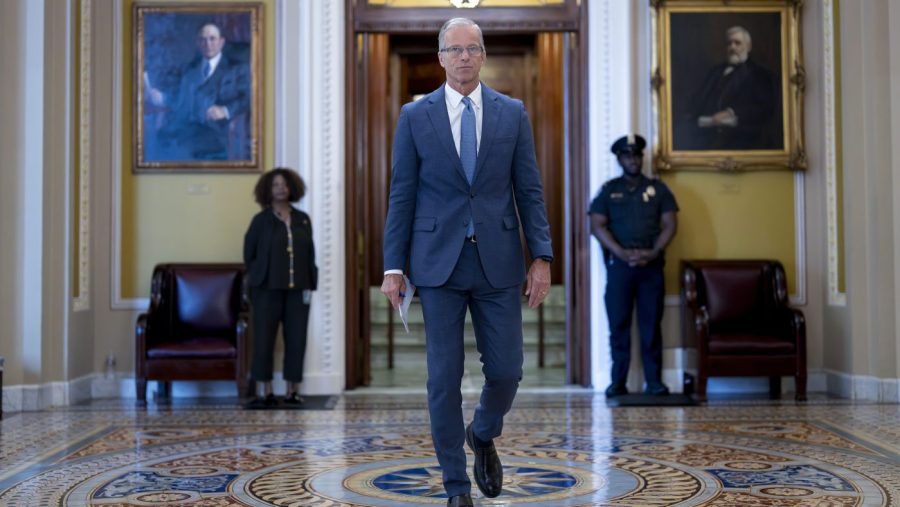
Senate Majority Leader John Thune (R-S.D.) announced on Tuesday morning that he believes he has reached an agreement with Sen. Lisa Murkowski (R-Alaska) to advance President Trump’s ambitious legislative package. However, Thune tempered his optimism by acknowledging his pragmatic outlook, stating, “I’m always a bit of a realist. We’ll see what happens.”
Thune’s comments came as he made his way from the Senate floor to his office, expressing cautious confidence in the deal. His demeanor appeared noticeably more relaxed after he and Murkowski examined legislative text on the Senate floor, with Senate Finance Committee Chair Mike Crapo (R-Idaho) and Budget Committee Chair Lindsey Graham (R-S.C.) in close proximity.
Key Developments in the Legislative Process
The breakthrough in negotiations came over 25 hours into the Senate’s intense “vote-a-rama” session. During this marathon legislative process, Thune engaged in overnight discussions with various Senate factions, including conservatives advocating for deeper Medicaid cuts and Sen. Rand Paul (R-Ky.), who remains opposed to the bill due to concerns over increasing the debt ceiling.
A source familiar with the discussions revealed that the Senate parliamentarian had approved revised language aimed at mitigating the impact of proposed Medicaid and food assistance cuts on Alaska, a critical factor in securing Murkowski’s support.
The Strategic Importance of Sen. Murkowski’s Vote
Murkowski’s vote is pivotal for the Republican leadership, which has been working tirelessly to secure her backing. Thune can afford to lose only three Republican votes, with Vice President Vance available to cast a tie-breaking vote if necessary. Vance was seen arriving at the Capitol as dawn broke, underscoring the high stakes of the pending vote.
“I believe we do,” Thune said when asked about the deal, reflecting a cautious optimism tempered by his Scandinavian heritage’s characteristic realism.
Context and Historical Parallels
This legislative push is reminiscent of past efforts to pass large-scale bills under tight deadlines and political pressure. The current scenario echoes the 2017 tax reform bill, where similar last-minute negotiations were critical in securing the necessary votes. The stakes are high as the bill encompasses significant policy changes, including contentious Medicaid adjustments.
Experts note that the dynamics within the Republican caucus highlight the complex interplay of regional interests and broader policy goals. The concessions made to address Alaska’s specific concerns illustrate the intricate balancing act required to unify diverse factions within the party.
Implications and Future Outlook
The potential passage of Trump’s megabill could have far-reaching implications, both politically and economically. If successful, it would mark a significant legislative victory for the Trump administration, potentially reshaping key areas of domestic policy.
Looking ahead, the focus will shift to the implementation of the bill’s provisions and their impact on various states and constituencies. The adjustments made to accommodate Alaska’s needs may set a precedent for future legislative negotiations, emphasizing the importance of addressing regional disparities.
As the Senate prepares for the final vote, all eyes are on the chamber to see if Thune’s optimism will translate into a concrete legislative achievement. The outcome will not only influence the immediate political landscape but also set the tone for upcoming legislative battles.







